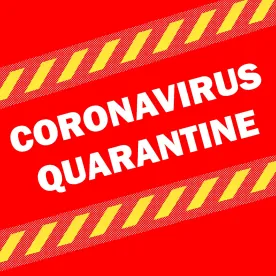COVID-19 has forced ski slopes to cease operation, compelled people to cancel trips of all kinds, and closed many summer camps. Attempts by insureds to obtain refunds or otherwise recoup the money they paid in connection with these services are increasingly leading to litigation against insurers.
Cancellation of a summer camp program recently resulted in the filing of one such proposed class action in the Eastern District of New York. According to the complaint, the parent enrolled her son in a residential summer camp generally attended by hundreds of children that was scheduled to occur from June 27, 2020, to August 15, 2020. The parent was charged to the tune of $12,000 and also purchased the event cancellation insurance offered at the time of the child’s enrollment.
In March 2020, the summer camp was canceled after the Commonwealth of Massachusetts declared COVID-19 to be a health emergency and closed all non-essential businesses. (The complaint details similar orders that were issued in the state of New York and other states nationwide.) Although the camp provided a reimbursement of approximately 50% of the camp cost, the parent sought the remaining amount from the insurer. After her claim was denied, the parent filed an action against the insurer, alleging that it breached the insurance contract by failing to pay for the losses incurred as a result of the cancellation of the summer camp.
The policy, attached to the complaint, states that benefits would be paid if the parent incurred unused, nonrefundable, prepaid expenses, if the trip was prevented from occurring due to, among other things, the trip participants being quarantined. The parent alleges that the policy covers quarantine-related trip or event cancellations, and argues that, because “quarantine” is not defined in the policy, the common-sense interpretation of the policy would extend coverage for losses sustained due to the quarantine orders. In the complaint, the parent proposes to represent a class of all insureds who purchased travel, trip and event cancellation insurance from the same insurer, which allegedly issued “blanket denials” to all COVID-19-related claims. The relief sought includes a declaration of coverage and compensatory damages. Since this suit was recently filed, the insurer’s arguments against coverage have not yet been brought forward.
Suits seeking coverage under cancellation policies issued in connection with travel and other recreational activities have also been filed in recent months. Policyholders have proposed consolidation of two types of these actions to the Joint Panel on Multidistrict Litigation (JPML ). One petition for multidistrict litigation (MDL) requests that the JPML consolidate eight suits in Texas, Kansas, South Carolina, California, Ohio, Illinois and New York, all of which concern claims that an insurer improperly denied claims under travel insurance policies for trips canceled due to COVID-19. Policyholders have alleged that the insurer denied claims with little to no investigation into the underlying facts. The insurer has based its denials on its position that the COVID-19 developments were foreseeable events as of January 29, 2020, and therefore are not covered under the policy form. Another proposed MDL focuses on the cancellation of ski passes and the refusal of two insurers to pay claims alleging losses to insured passes because of COVID-19-related ski resort closures. The claimants argue that the actions all share sufficiently common allegations for the cases to be consolidated, and that consolidation would provide uniformity to similar cases being filed across the country. The JPML is scheduled to hear argument on this proposed MDL during its September 24 hearing session.
The JPML also recently considered proposed MDL petitions regarding business interruption suits. Insurers unanimously opposed the consolidation of cases into an MDL, arguing that the resulting consolidation would combine cases having very limited common questions of fact and would in fact complicate the litigation, rather than simplifying it. Policyholders were split on whether consolidation was appropriate. Last month, the Judicial Panel on Multidistrict Litigation denied consolidation for a proposed nationwide MDL related to business interruption insurance claims. However, the Panel left open the question of whether consolidations would be appropriate for some insurers that are facing a high volume of cases, and has ordered additional briefing on that question. The Panel will hear argument on the proposed insurer-specific MDLs during its September 24 hearing session.
Concurrently with the proceedings before the JPML, litigation is proceeding in some business interruption suits . In those cases, more nuance has begun to emerge as parties continue to litigate. Insurers have argued in opposition to class certifications that “COVID-19 damages human lungs, not property.” Similarly, an insurer argued that there could be no physical loss to a property if the alleged harm could merely be cleaned off and thus easily remedied. Policyholders have continued to argue that structural alterations are not necessary to trigger coverage due to a “physical loss.”
Meanwhile, decisions have begun to roll in from courts around the country regarding motions to dismiss business interruption suits. One Missouri court ruled in favor of the insured, holding that physical loss did not require physical damage, per se. The court denied the insurer’s motion to dismiss and permitted discovery to proceed, ruling that the insured had sufficiently alleged conditions that could trigger coverage under the policy. By contrast, courts in D.C., Michigan, New York, Texas and Florida have all ruled in favor of insurers and dismissed suits. In one Michigan exemplar, the court granted summary judgment in favor of the insurer, finding that the plaintiff restaurants failed to demonstrate that they suffered a direct physical loss. A D.C. court in an analogous suit rejected the argument that closure orders could constitute a “direct physical loss,” as required to trigger coverage for the claim. Thus, these disputes are far from over and more lawsuits are likely to follow.






 />i
/>i

